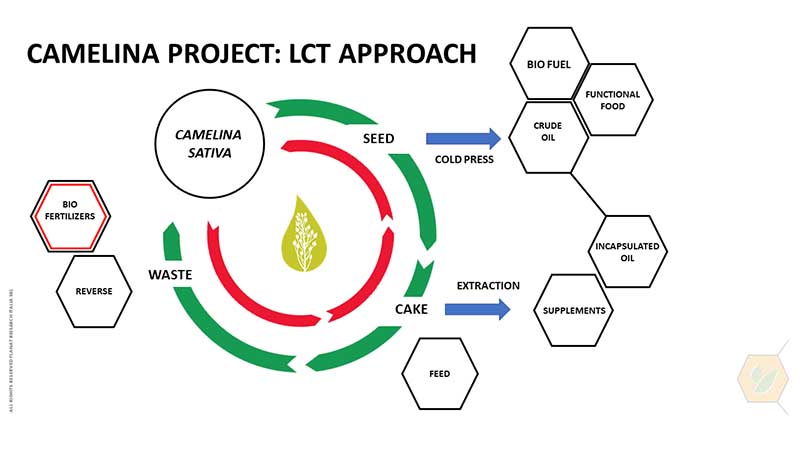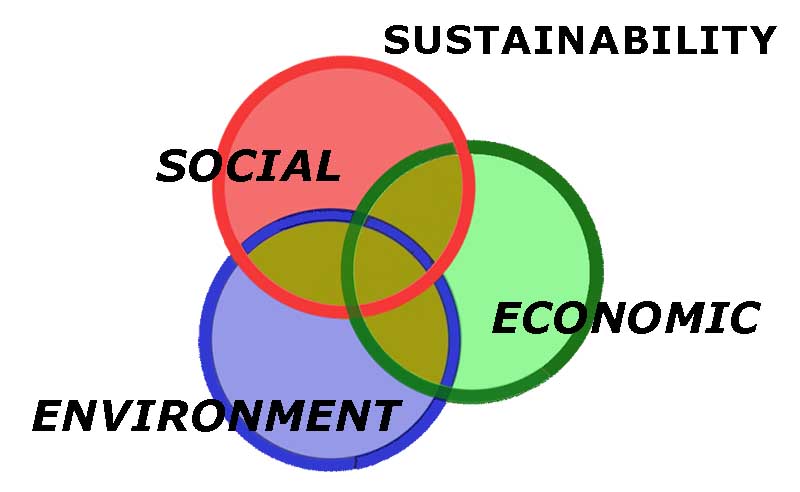LCT - Life Cycle Thinking
The Life Cycle Thinking (LCT) approach is an objective method of evaluating and quantifying energy and environmental loads and the potential impacts associated with a product, process or activity along its entire life cycle, from the acquisition of raw materials to end-of-life. We have to turn from "product design" to "process design".
In today's Europe, where the agri-food chain alone generates over 80 million tons of waste and whose disposal causes a significant impact on society in terms of costs and environmental pollution, it is mandatory to pay greater attention to environmental impact assessment.
The LCT approach allows the company to go beyond the traditional focus on the production processes of a product by providing with an overview capable of evaluating all possible impacts and consumption throughout the life cycle. In this way, not only the production waste is taken in consideration, but also all those portions of raw material not usually used in the agri-food chain.
Over the years we have learned that agri-food chain by-products can become a potential source of value. Parts of the stem, bracts, inflorescences, peels, roots are all by-products that are discarded, but which can find multiple uses based on different business contexts. Specifically, these are rich in various compounds such as proteins, fibers and microelements, thus representing an opportunity to be exploited through the production of nutritional ingredients.
However, in recent years, we have also learned that the recovery of these agri-food wastes, (although they can be enhanced through "clean" extraction processes of compounds with a high health value), could be not only economically inconvenient, but also counterproductive in terms of consumption and production of CO2.

It is not enough, for instance, to recover production waste when, in order to move them to the processing sites, hectoliters of fuel are consumed to transport them. The main objectives to be achieved must include optimizing resources, reducing the use of raw materials and consequently lowering polluting emissions to the environment that are released during production and processing, thus contributing to the concept of circular economy.
The Life Cycle thinking approach is 360° way of viewing the entire production cycle, social and environmental impact must also be included further to the costs: it is essential to review the project idea by transforming it into a process designed to the entire production chain and not only on a single product.
The Life Cycle Thinking approach proves to be a valuable tool for verifying circularity solutions starting from natural and sustainable ingredients. We are not talking here only of circular economy or just bioeconomy, we are finalizing a circular approach to the bioeconomy: the benefits are evident, in addition to having a complete picture of the performance of the process, it is possible to monitor the effects of any changes or measures aimed at optimization and / or improvement of any part of it.
We are therefore talking about a model with an ambitious and fundamental objective: to critically rethink the culture of production, conservation and distribution, where “waste” no longer exists as such but is an integral part of the development of a project. We must consider the set of all involved components and operations (design, production, transport, use, decommissioning and recovery / disposal) in order to verify that these are not the cause of a shift of the impacts to another part of the system able to compromise the overall performances.
With these concepts clear in mind, we have carried out our project to develop food and functional ingredients taking into consideration the entire production process drawn on all parts of the plant, without distinction between primary parts, those generally used as food, and secondary parts, the ones usually considered waste. The entire production process, from sowing to manufacturing the ingredients, was designed by optimizing each operation with a view to safeguarding the environment, social cohesion and maintaining the economic production parameters over time.
If you would like to know more about our LCT projects, do not hesitate to contact us, we will be happy to tell you, in detail, our experiences and support you on your path.


